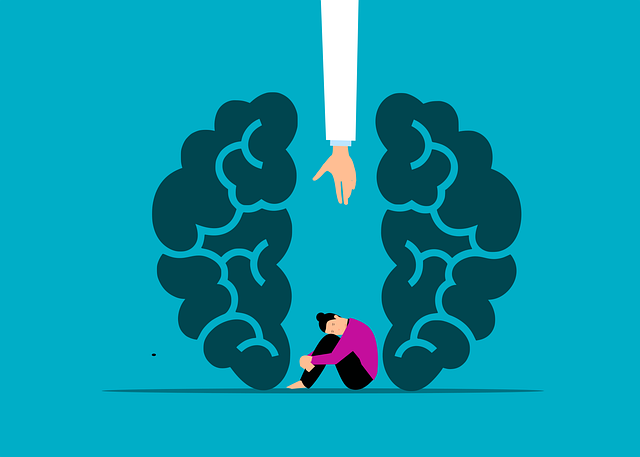Mental health professionals must grasp risks within therapy, including emotional triggers, cultural differences, and trauma connections, using empathy-building and conflict resolution techniques. Lafayette Somatic Experiencing Therapy (LSET) offers a holistic approach to support clients managing traumatic experiences and anxiety through body-mind connection. Effective risk management in mental health requires tailored strategies, such as risk assessment, mitigation protocols, staff training on stress management, and continuous improvement through shared learning, ensuring safe, compassionate care for both therapists and clients.
Mental health professionals constantly navigate complex risks in their practice. From patient safety to ethical dilemmas, effective risk management is crucial for maintaining therapeutic environments. This article explores a structured approach through Lafayette Somatic Experiencing Therapy (LSET), providing a framework for identifying and mitigating risks. We delve into developing comprehensive risk management plans, implementation strategies, and continuous improvement tactics tailored to the unique challenges of mental health care.
- Understanding Risk in Mental Health Practice
- Lafayette Somatic Experiencing Therapy: A Framework for Risk Mitigation
- Developing a Comprehensive Risk Management Plan
- Implementation and Continuous Improvement Strategies
Understanding Risk in Mental Health Practice

In the realm of mental health practice, understanding risk is paramount for professionals aiming to deliver safe and effective therapy. Risk can manifest in various forms, from potential emotional triggers within the therapeutic relationship to ethical dilemmas arising from cultural differences or complex interpersonal dynamics. For instance, Lafayette Somatic Experiencing Therapy (SE) emphasizes the connection between physical and emotional trauma, necessitating mental health practitioners to be attuned to both the conscious and subconscious cues of their clients.
Building empathy and cultural sensitivity is crucial in navigating these risks. Effective therapists employ empathy building strategies to foster deep understanding and trust, enabling them to address underlying issues with nuance. Additionally, conflict resolution techniques play a vital role in managing potential tension or misunderstandings that may arise due to cultural disparities or differing therapeutic approaches. These skills ensure that the mental health practice environment remains safe, respectful, and conducive to healing for all individuals seeking support.
Lafayette Somatic Experiencing Therapy: A Framework for Risk Mitigation

Lafayette Somatic Experiencing Therapy (LSET) offers a powerful framework for mental health professionals to mitigate risks and enhance their practice. This therapeutic approach emphasizes the connection between the mind, body, and spirit, recognizing that emotional healing is deeply intertwined with physical well-being. By incorporating LSET techniques, therapists can effectively support clients in managing traumatic experiences and anxiety relief, fostering compassion cultivation practices that lead to improved emotional regulation.
Through mindful attention to the body’s responses, LSET encourages professionals to create a safe and supportive environment, allowing individuals to process and release stored trauma. This holistic approach not only reduces risks associated with traditional talk therapy but also empowers therapists to provide transformative experiences that promote resilience and overall mental health.
Developing a Comprehensive Risk Management Plan

Developing a comprehensive risk management plan is paramount for mental health professionals to ensure they can navigate complex situations effectively while prioritizing their emotional well-being. This involves a multi-faceted approach that integrates Risk Assessment for Mental Health Professionals, tailored to the unique challenges faced in the field. By implementing robust strategies, therapists can mitigate potential risks and foster a safe, supportive environment for both clients and themselves.
At its core, such a plan should encompass emotional well-being promotion techniques designed to enhance resilience and self-care practices. For instance, incorporating elements of Lafayette Somatic Experiencing Therapy or other evidence-based practices into routine sessions can empower professionals to address trauma, stress, and other mental health concerns within themselves. Simultaneously, considering the development of Mental Wellness Coaching Programs, either independently or as part of a broader training curriculum, equips therapists with valuable tools for managing their own emotional landscapes while they guide clients toward healing.
Implementation and Continuous Improvement Strategies

Implementing effective risk management strategies requires a structured approach tailored to the unique demands of mental health professionals. At its core, this involves establishing clear protocols for identifying and mitigating potential risks within therapeutic settings. For instance, integrating practices like Lafayette Somatic Experiencing Therapy (SE) can empower therapists to address complex trauma responses, thereby enhancing their ability to manage high-risk cases. Regular staff training on stress management techniques and communication strategies further fortifies these measures.
Continuous improvement is paramount in this process. Mental health professionals should encourage open dialogue among colleagues, fostering a culture where experiences—both successful interventions and challenging incidents—are shared and learned from. This fosters an environment of compassionate cultivation practices, where therapists support one another in navigating complex ethical dilemmas. By embracing such an iterative approach, mental health organizations can ensure their risk management strategies remain dynamic, evidence-based, and aligned with best practices.
Mental health professionals must continually assess and manage risks in their practice to ensure patient safety and well-being. By understanding the unique risks inherent in mental health care, practitioners can benefit from frameworks like Lafayette Somatic Experiencing Therapy for comprehensive risk mitigation. Developing a robust risk management plan, implementing strategic improvements, and fostering a culture of continuous learning are essential steps to navigate these challenges effectively. Through proactive risk planning, professionals can enhance patient outcomes and maintain the integrity of their practice.














